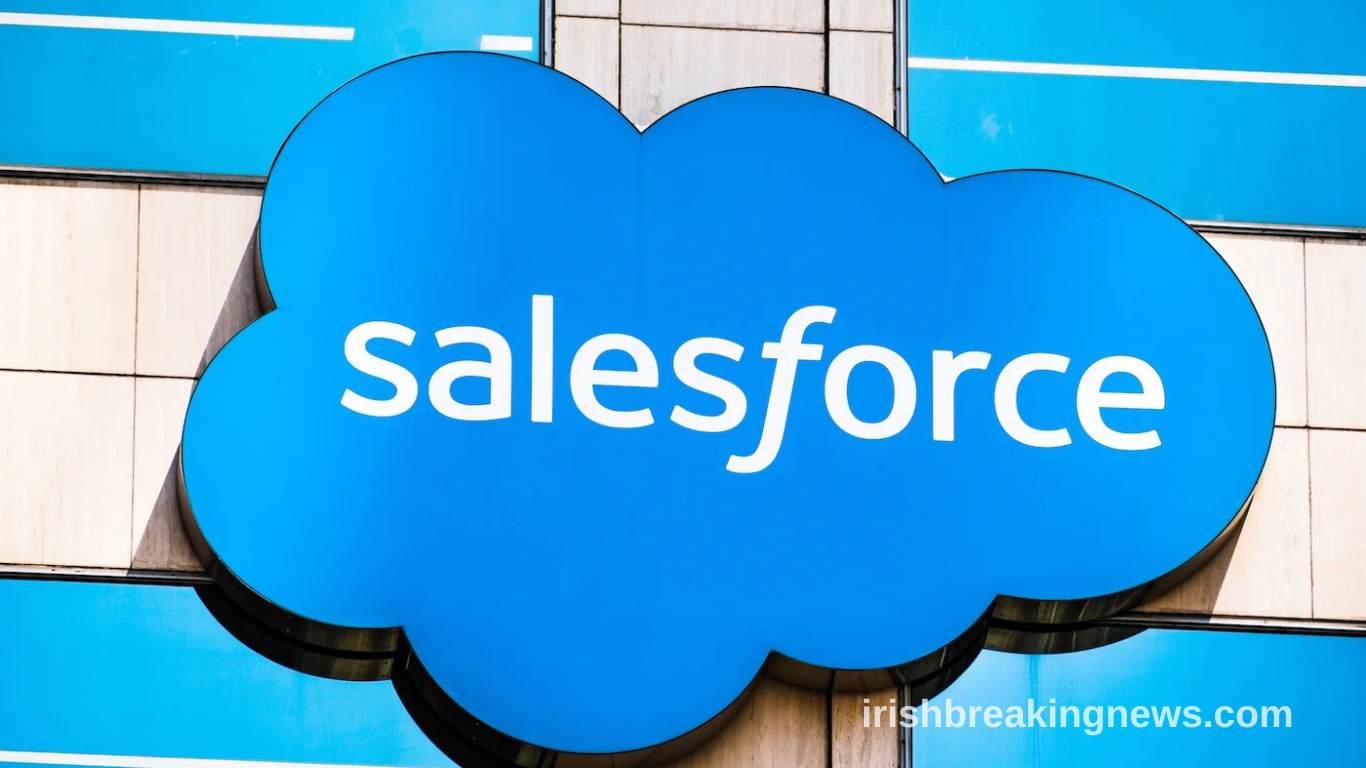Salesforce, a global leader in cloud-based software solutions, is once again in discussions to acquire Informatica, a well-established enterprise data management firm. This strategic dialogue comes as businesses place a growing emphasis on data integration and analytics to drive digital transformation.
Informatica is recognized for its robust cloud data management tools, which align well with Salesforce’s existing suite of CRM and AI-driven analytics services. The renewed interest from Salesforce suggests a push to consolidate its position in the competitive enterprise tech landscape.
The discussions, still in a confidential phase, could reshape how companies manage data across platforms. Analysts view this potential merger as a major step toward creating a unified data ecosystem that empowers businesses with real-time, actionable insights.
Salesforce Strengthens Its Vision with Strategic Moves
Salesforce has consistently aimed to evolve beyond traditional CRM services. Recent acquisitions such as Tableau and MuleSoft reflect this ambition. With Informatica, Salesforce looks to gain deeper data integration capabilities, complementing its Einstein AI and Customer 360 platforms.
Informatica specializes in data cataloging, governance, and transformation key areas for businesses managing complex, multi-cloud environments. The move also underscores Salesforce’s recognition of data as the backbone of modern enterprise strategy.
By adding Informatica to its portfolio, Salesforce enhances its position as a one-stop cloud solution provider. The acquisition would give Salesforce greater leverage in delivering intelligent, end-to-end enterprise services.
Informatica’s Role in Modern Data Infrastructure
Informatica’s software enables companies to manage, migrate, and unify their data efficiently. It provides vital tools for building secure, compliant, and scalable data architectures across diverse IT systems.
Its AI-powered platform offers data quality monitoring, privacy compliance, and metadata intelligence functions that are increasingly indispensable in regulated industries such as finance, healthcare, and telecom.
The potential Salesforce-Informatica merger brings focus to how essential data orchestration tools have become in digital strategies. By integrating Informatica, Salesforce could deliver a full-stack experience that includes data handling, analytics, automation, and customer engagement.
Rising Demand for Enterprise Data Integration
Enterprise data management has moved from being a backend operation to a core strategic function. Companies are investing heavily in tools that allow them to pull insights from siloed data, improve operational efficiency, and comply with regulations.
Read More : Capgemini Is Said to Pause Talks to Buy Outsourcing Firm WNS
Informatica’s strength lies in handling large, fragmented data sets and harmonizing them for strategic use. This capability aligns closely with Salesforce’s drive to offer real-time, AI-powered recommendations to its clients.
The deal, if completed, would help Salesforce meet the rising expectations of its enterprise clientele, who are increasingly seeking seamless integration between customer data, analytics, and workflow automation tools.
Competitive Landscape Pushes Salesforce to Innovate
Salesforce operates in a highly competitive environment where tech giants like Microsoft, Oracle, and SAP are rapidly expanding their enterprise software capabilities. Each of these players is investing in data platforms to boost their cloud services.
By acquiring Informatica, Salesforce could gain a significant advantage in multi-cloud environments and hybrid IT architectures—areas where Informatica already excels.
This strategic edge could help Salesforce retain its top-tier client base and attract new businesses looking for integrated, AI-ready cloud platforms.
Market Experts Weigh In on the Deal
Analysts suggest that this acquisition could have ripple effects across the enterprise software industry. It may drive similar deals as companies seek to strengthen their data capabilities through mergers and acquisitions.
The move is also seen as a natural evolution for Salesforce, which has been building toward a comprehensive, AI-driven cloud ecosystem. Informatica’s inclusion would enhance Salesforce’s ability to support digital-first businesses across sectors.
Market reactions have been mixed but attentive, with investors closely monitoring updates on the ongoing negotiations.
Potential Benefits for Business Users
If successful, the acquisition stands to deliver numerous advantages to existing Salesforce users. Businesses could access better data unification, cleaner analytics, and enhanced automation tools.
Integrating Informatica’s services within Salesforce would simplify data governance and boost the accuracy of AI predictions. It would also reduce the need for third-party integrations, streamlining IT operations for many firms.
From marketing to finance and IT departments, various teams could leverage the unified ecosystem to achieve smarter, faster decision-making.
Frequently Asked Questions
Why is Salesforce interested in acquiring Informatica?
Salesforce aims to enhance its data integration and governance capabilities to support its AI and CRM platforms more effectively.
What does Informatica specialize in?
Informatica offers cloud data management tools, including data integration, quality, governance, and analytics across hybrid environments.
How will this acquisition benefit Salesforce users?
Users will gain access to better data unification, real-time analytics, and reduced dependence on third-party tools.
Has Salesforce acquired similar companies before?
Yes, notable acquisitions include Tableau for analytics and MuleSoft for API integration, both aligning with data-focused strategies.
How does this affect the enterprise software market?
It increases competition among major players and may trigger more acquisitions focused on cloud data services.
What industries would benefit most from this merger?
Heavily regulated sectors like finance, healthcare, and telecom that rely on strong data governance would benefit significantly.
Has Salesforce and Informatica confirmed the deal?
As of now, talks are ongoing, and no official confirmation has been released by either party.
Will this affect current Informatica customers?
If the acquisition goes through, existing customers could see new integration features and enhanced support via Salesforce.
Conclusion
Salesforce’s renewed interest in acquiring Informatica signals a strategic push toward mastering data integration and AI-powered enterprise solutions. With the two firms’ complementary strengths, this potential merger could reshape how organizations harness their data assets in cloud environments.

